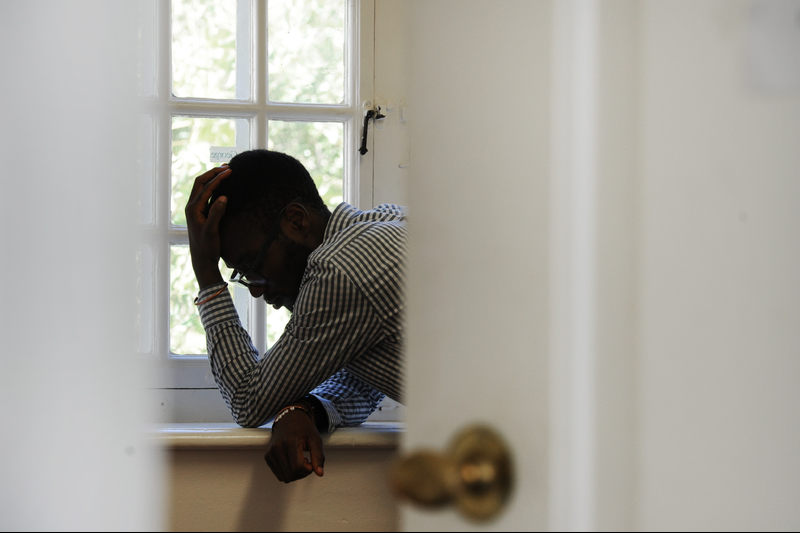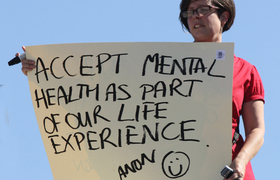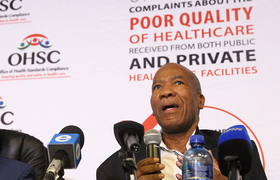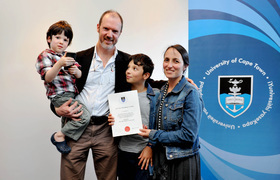Close the mental health treatment gap
10 October 2017 | Story Supplied. Photo Michael Hammond.
South Africa needs sustainable solutions to deal with its mental health treatment gap, delegates heard at a roundtable discussion ahead of World Mental Health Day (WMHD) today. The discussion, “Economy, Equality and Access to Mental Health Services”, was hosted by the Alan J Flisher Centre for Public Mental Health.
The Alan J Flisher Centre for Public Mental Health (CPMH) grew out of a shared vision and collaboration between UCT’s Department of Psychiatry and Mental Health, and Stellenbosch University’s Psychology Department. It is the only mental health and psychiatry World Health Organization (WHO) Collaborating Centre in South Africa.
The roundtable discussions reiterated that mental health is becoming an increasingly unbearable burden for the country’s economy. Chaired by the CPMH’s co-director, Professor Ashraf Kagee of Stellenbosch University, the presentations and discussions centred on the need for lasting solutions to the mental health treatment gap.
Invest in mental health
The CPMH’s Sumaiyah Docrat presented an economic case for investing in mental health in South Africa.
“In South Africa, severe depression and anxiety disorders are associated with a significant reduction in earnings for both employed and unemployed adults living with these conditions.”
Docrat noted that studies show an estimated lost income in South Africa of US$4 798 per adult per year (around R43 182 in 2013) due to mental illness. The total annual cost amounts to US$3.6 billion (around R32.4 billion in 2013) – a contrast to the estimated US$59 million (around R539 million in 2013) estimated annual government spending on mental health services.
Other presenters included Petrus de Vries, professor of child and adolescent psychiatry at UCT, Dr Simone Honikman and Charlotte Mande Ilunga of UCT’s Perinatal Mental Health Project, Dr Jo Hart and Dr Lucie Byrne-Davis of the University of Manchester, and Professor Lou-Marie Kruger of Stellenbosch University.
Their discussions highlighted a desperate need for in-depth investment by the South African government into sustainable mental healthcare.
“Our government and many governments on our continent, and in fact around the world, need to make public funds available to address the mental health treatment gap,” said Kagee.
“There is considerable evidence that mental health conditions are treatable and that patients can experience relief from these disorders. Our politicians, policymakers and decision makers need to develop the political will to make funds available so that more posts for psychiatrists, psychologists, counsellors and social workers can be created.”
Mental health at work
Addressing the international WMHD theme, CPMH co-director Professor Katherine Sorsdahl of UCT spoke about mental health in the workplace. She emphasised that work is essential for mental health and vice versa.
Referring to a study conducted in South Africa among the advertising and market research industries, Sorsdahl said, “Of the 1 060 employees who participated in the online survey, 26% reported a diagnosis of depression. The results of this study found that the costs associated with presenteeism were significantly higher than that of absenteeism.”
Access the recordings of all the presentations as well as the PowerPoint slides…
 This work is licensed under a Creative Commons Attribution-NoDerivatives 4.0 International License.
This work is licensed under a Creative Commons Attribution-NoDerivatives 4.0 International License.
Please view the republishing articles page for more information.










